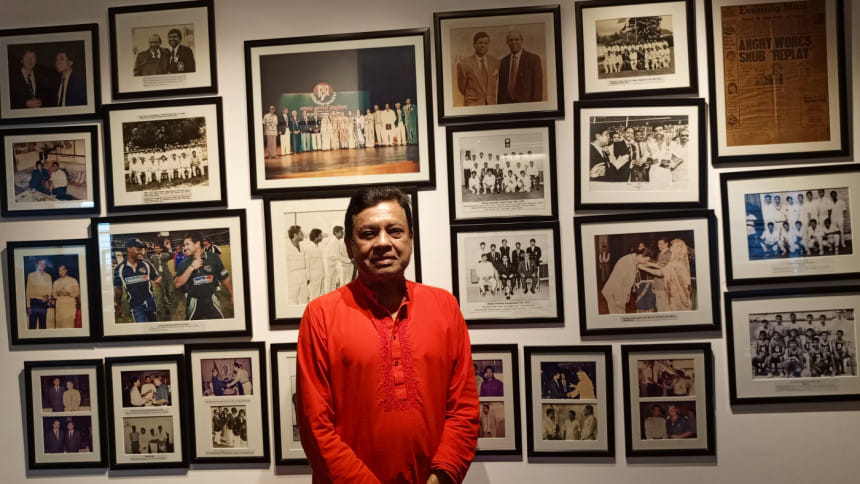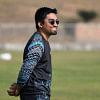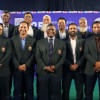‘Are you mad?’ – Bangladesh’s Test dream started with disbelief and determination

Syed Ashraful Haque, a key architect in Bangladesh's journey to Test status, spoke to The Daily Star's Samsul Arefin Khan on the occasion of the 25th anniversary of that historic milestone. The former Bangladesh Cricket Board and Asian Cricket Council official reflected on the behind-the-scenes efforts that turned the dream into reality. The following are excerpts from the interview:
The Daily Star (DS): How did the process of gaining Test status begin?
Syed Ashraful Haque (SAH): Frankly speaking, when we applied for the Test status, we didn't feel that we would get it. In 1996, NSC appointed Saber Hossain Chowdhury as the cricket board's president. One day Saber said to me, "Ashraful bhai, let's apply for Test status." I replied to him laughingly, "Are you mad? We can't even play first-class cricket and you are talking about Test." He insisted I apply for it, saying that by doing so, we would at least be in the queue. Then I started the paperwork and in 1996, we applied to the ICC.
The ICC then formed a four-member committee regarding Bangladesh's Test status with one representative each from Pakistan, Australia, New Zealand and Zimbabwe. The committee visited Bangladesh in 1998 and gave us a checklist to fulfil. We started our work and they gave us feedback after going through it. In the meantime, in 1996–97, Jaggu da (Jagmohan Dalmiya) became the ICC president. It was a very big help for us. In 1996, we won the ACC Trophy, in 1997, we won the ICC Trophy and we also hosted the mini World Cup in 1998. That's why we could strongly push every other full member by saying that we were the best side among the associate nations.
During an ICC Executive Board meeting in 1999, when the matter of Bangladesh's Test status came up, Pakistan formally proposed our Test status, with India seconding the motion. The same year, West Indies A visited us. Ian Bishop was the manager of that team. He was very impressed because of the crowd support and his feedback gave us West Indies' vote. England, South Africa, Australia and New Zealand didn't vote for us in the first voting, where we won 5–4. But we needed at least two-thirds of the ICC full members' votes.
Then we started working on Australia and South Africa and discussed strategic partnership with both cricket boards. We brought Eddie Barlow from South Africa as our national team head coach and he also helped us in obtaining Test status. In early 2000, the ICC sent another team for inspection and before leaving, they told me that they would recommend us.
On June 25, an Executive Board meeting took place in Morocco where our Test status issue was confirmed by 8–1 votes. Basically, we got the Test status on the evening of the 25th, but it had to be approved in the annual conference on the next day in London. On June 26, we finally received Test status unanimously as all full members and associate members voted in favour of us.
DS: What's the most memorable moment for you during this time frame?
SAH: The fact that we got Test status is the biggest achievement I thought. I would put it as number one in my organisational achievements.
DS: Which is the thing that disappointed you the most?
SAH: I'm disappointed to see the lack of development in the country's cricket. I wanted to see Bangladesh at No. 4 or 5 after 25 years in Test cricket and in a similar position in ODIs. I imagined we would have won a World Cup at least. My biggest disappointment is that we had the money and could have ensured all the facilities for our players all over the country. The game united people of our country but we could not take advantage of it.
DS: How much of your dream with Bangladesh cricket has been fulfilled in those years?
SAH: For me, seeing Bangladesh playing Tests is enough. But I think we should have made a lot more progress. We are the number 9 team in the world and after being here for 25 years, it means we are a total failure. If we didn't have the money and popularity, that would be different… Sri Lanka got the Test status in 1981 and by 1996, they were world champions. It's embarrassing for us that still England and Australia don't want to host us. I find a lack of forward planning in this matter as we only play series by series. We are thinking only about the present, just to save our chairs.
DS: We have heard about a model of Eddie Barlow. Why couldn't it be implemented?
SAH: After his departure, we didn't implement it. He had a long-term plan because he came from a cricketing country which had the world's best players in his time. He knew how it should be done and he had a vision. He wanted to create a structure but we didn't take it because we preferred more of a stop-gap approach. We became too ambitious and since money was flowing, it started to corrupt people at the board.

 For all latest news, follow The Daily Star's Google News channel.
For all latest news, follow The Daily Star's Google News channel. 






Comments